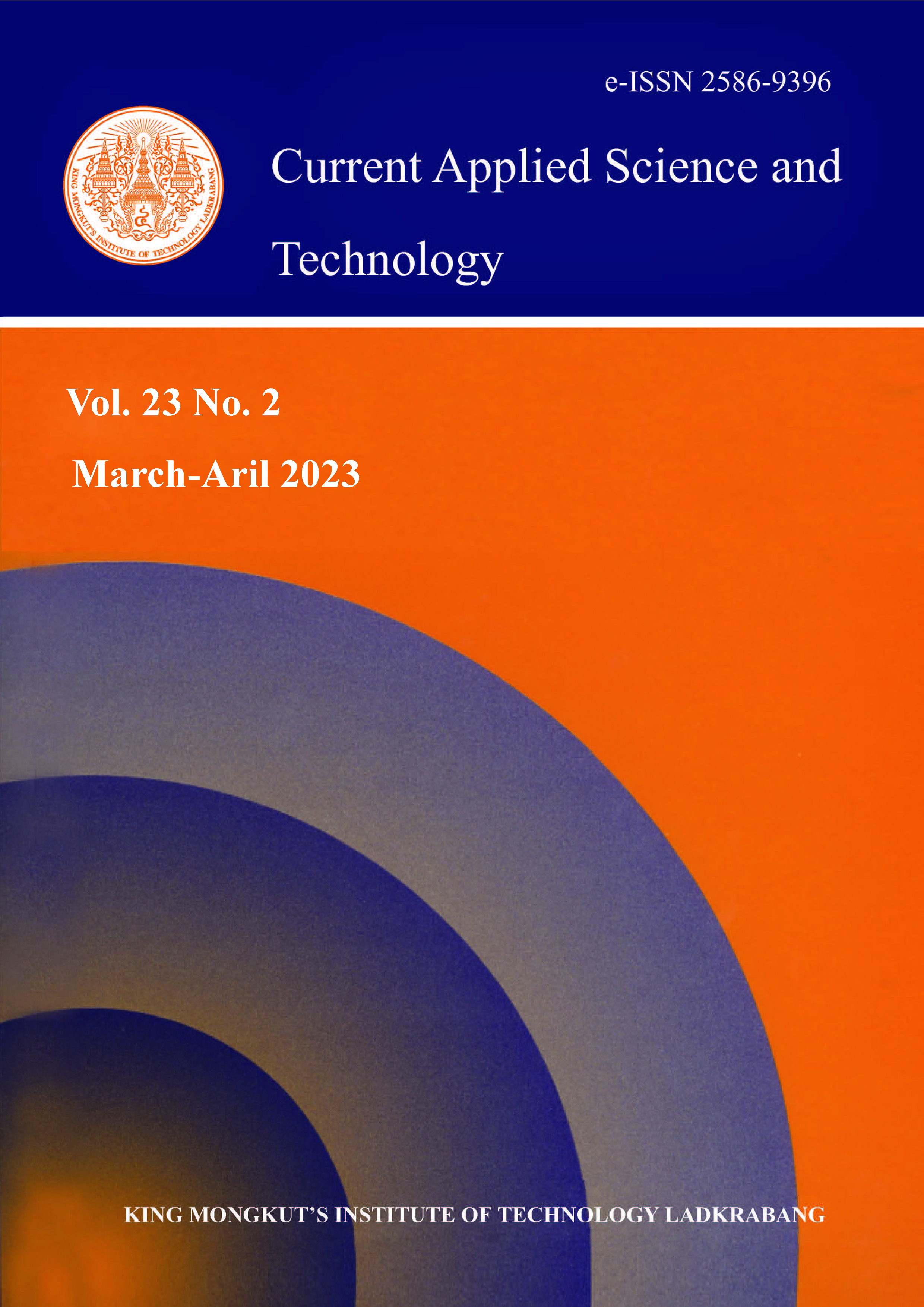Forced Randomized Response Protocol Using Arbitrary Random Variable
Main Article Content
Abstract
Anonymous polls nowadays rely solely on centralization, which means that respondents should trust the owner's company not to share responses or look through all the submitted answers. However, there is a concept of randomized response which trades the need for trust with some error. In this paper, the classical forced randomized response protocol is extended by using an arbitrary random variable. We try to optimize the tradeoff between accuracy and privacy of the polling. The Gaussian random variable is chosen to perform simulations of our method. For the best model, the poll maker has to choose the parameters that maximize a utility function, which has to be defined due to the priority between privacy and accuracy. If the poll maker prioritizes voters’ privacy, our simulation shows that the best Gaussian random variable model, in this case, will be the model with = 0.9 and
= 0.2. On the other hand, if the poll maker prioritizes accuracy, the best model for our experiment will be the one with
= 0.9 and
= 1.
Keywords: anonymity; privacy preserving; randomized response; sampling method
*Corresponding author: Tel.: (+66) 33013888 Fax: (+66) 33013889
E-mail: pat.v@kvis.ac.th
Article Details

This work is licensed under a Creative Commons Attribution-NonCommercial-NoDerivatives 4.0 International License.
Copyright Transfer Statement
The copyright of this article is transferred to Current Applied Science and Technology journal with effect if and when the article is accepted for publication. The copyright transfer covers the exclusive right to reproduce and distribute the article, including reprints, translations, photographic reproductions, electronic form (offline, online) or any other reproductions of similar nature.
The author warrants that this contribution is original and that he/she has full power to make this grant. The author signs for and accepts responsibility for releasing this material on behalf of any and all co-authors.
Here is the link for download: Copyright transfer form.pdf
References
Warner, S.L., 1965. Randomized response: A survey technique for eliminating evasive answer bias. Journal of the American Statistical Association, 60(309), 63-69.
Blair, G., Imai, K. and Zhou, Y.Y., 2015. Design and analysis of the randomized response technique. Journal of the American Statistical Association, 110, 1304-1319.
Boruch, R.F., 1971. Assuring confidentiality of responses in social research: A note on strategies. American Sociologist, 6, 308-311.
Kuk, A.Y., 1990. Asking sensitive questions Indirectly. Biometrika, 77(2), 436-438.
Greenberg, B.G., Kuebler, R.R., Abernathy, J.R. and Horvitz, D.G., 1971. Application of the randomized response technique in obtaining quantitative data. Journal of the American Statistical Association, 66, 243-250.
Lensvelt-Mulders, G.J.L.M., Hox, J.J. and Heijden, P.G.M., 2005. How to improve the efficiency of randomised response designs. Quality and Quantity, 39, 253-265.
Blair, G., Imai, K. and Zhou, Y.-Y., 2015. Design and analysis of the randomized response technique. Journal of the American Statistical Association, 110(511), DOI: 10.1080/0162 1459.2015.1050028.
Krumpal, I., 2012. Estimating the prevalence of xenophobia and anti-semitism in Germany: A comparison of randomized response and direct questioning. Social Science Research, 41, 1387-1403.
St John, F.A.V., Keane, A.M., Edwards-Jones, G., Jones, L., Yarnell, R.W., and Jones, J.P.G., 2012. Identifying indicators of illegal behaviour: carnivore killing in human-managed landscapes. Proceedings of the Royal Society B: Biological Sciences, 279, 804-812.
Stubbe, J.H., Chorus, A.M., Frank, L.E., Hon, O. and Heijden, P.G., 2014. Prevalence of use of performance enhancing drugs by fitness centre members. Drug Testing and Analysis, 6, 434-438.
Cobo, B., Rueda, M.M. and López-Torrecillas, F., 2016. Application of randomized response techniques for investigating cannabis use by Spanish university students. International Journal of Methods in Psychiatric Research, 26(4), DOI: 10.1002/mpr.1517.
Schröter, H., Studzinski, B., Dietz, P., Ulrich, R., Striegel, H. and Simon, P., 2016. A comparison of the cheater detection and the unrelated question models: A randomized response survey on physical and cognitive doping in recreational triathletes. PLoS One, 11(5), DOI: 10.1371/journal.pone.0155765.
Kirtadze, I., Otiashvili, D., Tabatadze, M., Vardanashvili, I., Sturua, L., Zabransky, T. and Anthony, J.C., 2018. Republic of Georgia estimates for prevalence of drug use: Randomized response techniques suggest under-estimation. Drug and Alcohol Dependence, 187, 300-304.
Cobo, B., Castillo, E., López-Torrecillas, F. and Rueda, M.D.M., 2021. Indirect questioning methods for sensitive survey questions: Modelling criminal behaviours among a prison population. PLoS One, 16(1), DOI: 10.1371/journal.pone.0245550.
Zhang, X., Crespo-Facorro, B., Leon, J. and Diaz, F.J., 2020. Measuring individual benefits of psychiatric treatment using longitudinal binary outcomes: Application to antipsychotic benefits in non-cannabis and cannabis users. Journal of Biopharmaceutical Statistics, 30(5), 916-940.
Jeffreys, H., 1973. Scientific Inference. Cambridge: Cambridge University Press.






